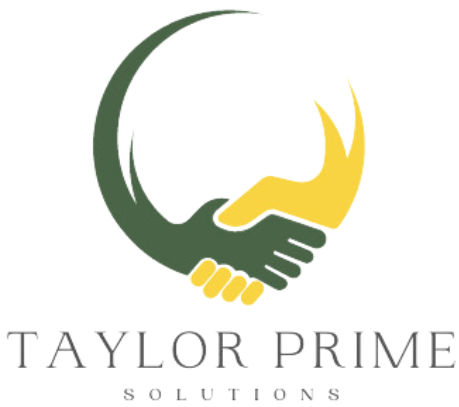A Strategic Overview for Providers Choosing the Right Billing Infrastructure
The Three Types of Medical Billing Systems—Closed, Open, and Isolated—each play a vital role in how healthcare practices manage claims, patient data, and reimbursement. In an industry where timely and accurate billing can make or break financial health, selecting the right system is no longer optional—it’s essential.
At Taylor Prime Solutions, we break down the functionality, advantages, and challenges of the three types of medical billing systems to help healthcare providers like you determine which model fits best.
Why Understanding the Three Types of Medical Billing Systems Matters
Each of the three types of medical billing systems comes with strengths and limitations. Choosing the wrong one can slow down operations, lead to data inefficiencies, or worse—impact cash flow. Understanding the distinctions can help your practice:
-
Improve revenue cycle management
-
Increase claim accuracy
-
Strengthen data security
-
Streamline administrative processes
🔐 1 of 3, Three Types of Medical Billing Systems: Closed Medical Billing Systems
Best for: Hospitals, large healthcare networks, or integrated clinics
A Closed System is self-contained. All billing, coding, and patient data remain within one secure environment. There’s no data exchange between outside providers or systems.
🔎 Benefits of a Closed System:
-
Enhanced Security: No external access limits data breach risks
-
Streamlined Workflows: All departments use the same system
-
Custom Control: Tailored reports, workflows, and compliance filters
⚠️ Challenges:
-
Limited Interoperability: Cannot easily connect with outside labs, specialists, or providers
-
High Costs: Expensive to implement and maintain; best suited for large operations
🔧 Taylor Prime Solutions supports practices using Closed Systems by ensuring internal consistency, high coding accuracy, and secure claim submission aligned with HIPAA.
🔄 2 of 3, Three Types of Medical Billing Systems: Open Medical Billing Systems
Best for: Multi-provider networks, practices coordinating with external partners
An Open System facilitates interoperability, allowing the exchange of patient and billing data between different systems or providers. Think integrations with labs, specialists, insurance portals, or even government programs.
🔎 Benefits of an Open System:
-
Information Sharing: Enhances care coordination
-
Flexible Integrations: Connects with other EMRs, clearinghouses, or insurance platforms
-
Cost-Effective: Typically less expensive than a closed network
⚠️ Challenges:
-
Data Security Risks: Requires strong cybersecurity protocols
-
Complex Coordination: Multiple system integrations demand careful maintenance
🔧 Taylor Prime Solutions optimizes Open Systems by ensuring clean claim data across platforms, minimizing duplicate entries, and tightening compliance controls across collaborative networks.
🧾 3 of 3, Three Types of Medical Billing Systems: Isolated Medical Billing Systems
Best for: Solo providers, small clinics, or practices on a limited budget
An Isolated System is completely independent. There’s no integration with other platforms, and all billing data is managed internally.
🔎 Benefits of an Isolated System:
-
Simplicity: Easy setup and management
-
Low Cost: Minimal investment required
-
Full Data Control: No third-party system involved
⚠️ Challenges:
-
Manual Processes: Susceptible to human error, slower reimbursements
-
Limited Scalability: Not ideal for growing or multi-provider practices
-
No Integration: Cannot send or receive data from external entities
🔧 For clients using Isolated Systems, Taylor Prime Solutions introduces process automation tools, claims scrubbing protocols, and denial tracking workflows to maximize output without integrations.
Choosing the Right System with Taylor Prime Solutions
Whether you’re managing multiple providers or operating solo, selecting the right one out of the three types of medical billing systems is critical. That’s where we come in.
✅ Why Taylor Prime Solutions?
-
Expert Guidance: We’ll assess your workflow, software, payer mix, and growth plans
-
System Support: We work with all major EMRs and clearinghouses
-
Scalable Solutions: From isolated setups to open integrations, we scale with your business
-
U.S.-Based Support: Always local, always available
📞 Need Help Choosing Between the Three Types of Medical Billing Systems?
Let’s simplify your billing operations together.
📞 Call: 844-TAYLOR-9 or 844-829-5679
📧 Email: taylor@taylorprimeemcee.com
🌐 Visit www.taylorprimeemcee.com
💬 Contact Us: Get in touch via our contact page »
Let’s tailor a billing solution that will be customized for your practice, your patients, and your bottom line.
✅ Additional Reading From Taylor Prime Solutions
-
Curious about outsourced billing? Read why outsourcing is a smarter solution.
-
Start comparing services: See our full medical billing services in Baltimore.
- Looking for cost-effective options? Explore Affordable Medical Billing in Baltimore.


